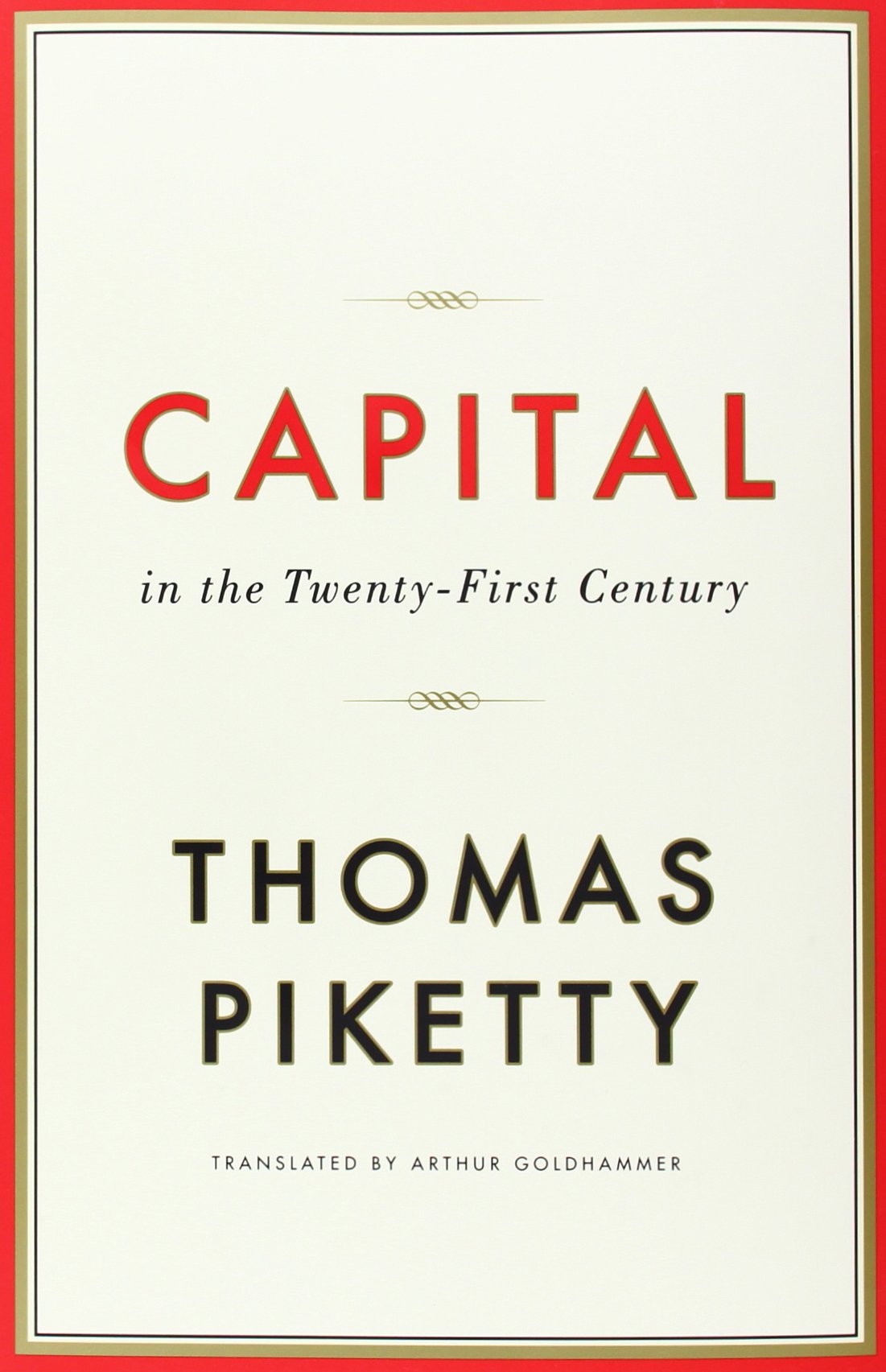 I’m meeting with some colleagues over the summer to discuss Thomas Piketty’s new book, Capital in the Twenty-First Century. We’re reading two chapters every week, and I’m going to post my thoughts as we go along. You can think of this as a slow-motion book review.
I’m meeting with some colleagues over the summer to discuss Thomas Piketty’s new book, Capital in the Twenty-First Century. We’re reading two chapters every week, and I’m going to post my thoughts as we go along. You can think of this as a slow-motion book review.
Chapter 1 provides an overview, and Chapter 2 mainly discusses concepts, so it’s premature to comment on Piketty’s main argument. Indeed, as I go along, I’ll probably need to revise initial impressions in light of later chapters. That said, here are some comments on the first two chapters.
1. Piketty places himself in an intellectual tradition of economists who are concerned with growth and inequality, above all Ricardo, Marx, and Kuznets. Piketty praises each for focusing on these issues, for attending to empirical realities (particularly Kuznets who puts together the first usable data set), and for proposing a theory about the long-term trend of inequality. And he criticizes each for being, well, wrong, and specifically for extrapolating on the basis of inadequate data.
And my first thought is how these comments rebound on Piketty’s own project. One key issue is to what extent can he reliably extrapolate based on his own (much better data). Kuznets was wrong in extrapolating a downward trend in inequality on the basis of his limited data, and so we have to wonder about the basis for extrapolating an upward trend in inequality on the basis of Piketty’s significantly better but still limited data. One notable point is that Piketty extrapolates low long-term economic growth (a key variable in his theory) on the basis of many hundreds of years of history rather than going back to (say) the industrial revolution or later. Is that the right assumption?
2. I suspect, based more on the reviews than on what I have read so far, but partly on that as well, that we will see two Pikettys, or rather two theses:
a. The weak thesis: there is (contra Kuznets) no law that inequality declines with growth; it could go up or down. No one knows.
b. The strong thesis: there is a law that (also contra Kuznets) inequality will increase with growth.
I’m interested to see how this plays out. The weak thesis may contradict some popular right-wing misconceptions but as an academic theory it’s pretty, well, weak. As Piketty acknowledges, Kuznets himself did not consider his own law anything more than speculative. The strong thesis is much more exciting and important, but may end up being just as speculative as Kuznets’.
3. Another issue that I will revisit as I learn more is what exactly we should think about inequality. Piketty is not very clear about this so far. He hints that inequality could lead to very bad outcomes–revolutions, or an oligarchy, or social instability–or maybe it is inherently objectionable. A very old question is whether inequality is worth tolerating for the sake of growth if the bottom rises. Piketty is already clear that we can’t assume that this is the case; nonetheless, we need to know what we think about this before we propose reforms that might improve equality but suppress growth.
4. Finally, I was struck by an interesting observation that Piketty makes in passing about development. He argues that the development success stories–China, South Korea, Japan, and so on–benefited from free trade but not from foreign investment. Meanwhile, foreign investment has actually harmed many countries, especially in Africa and maybe Latin America, because poor members of the public resent foreign wealth in their midst and support populist governments that expropriate foreign investment and destroy the economy. Is there empirical evidence for this argument?, I wonder. If it’s right, it has important implications for how best to help developing countries (namely, don’t invest in them!).